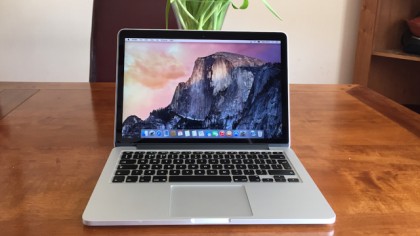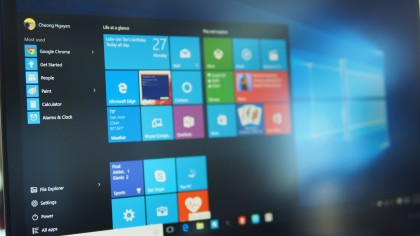Mac or PC: what is the best platform for your small business
Fewer differences than you think
As enterprise is its core customer, Microsoft has made hardware customization and network functionality and support a cornerstone of its design philosophy.
Apple on the other hand, has focused on user interface and plug-n-playability to appeal to its core customer: consumers.
Small businesses with limited IT support who rely on cloud-based storage and software will appreciate Apple's "it just works" philosophy. They can plug in their Macs, connect to the internet and go. But small businesses that need specialized hardware for their in-house servers may find Apple lacking.
The same dedicated hardware that makes a Mac reliable also makes it difficult, if not impossible to customize. When it comes to specialization and networking, PC is the platform of choice.
Windows based servers are the IT standard, and they are designed with the PC in mind. Sure, Macs will couple with a Windows network, but it will be an arranged marriage, requiring more resources and support to get them together. PCs and Windows-based servers have a natural affinity. Small businesses can save IT a lot of time by taking advantage of it.

Security
There are two common consequences for businesses that lack proper computer security.
The lesser of the two is poor performance. We all know what that means. Applications slowly open, hourglasses appear whenever the mouse is clicked, and websites turn into still-life photos. And more importantly, productivity suffers as employees fight the machines that are supposed to help them.
Are you a pro? Subscribe to our newsletter
Sign up to the TechRadar Pro newsletter to get all the top news, opinion, features and guidance your business needs to succeed!
The other, potentially devastating consequence, is data compromise. Employee files, accounting data, company secrets – the loss of any private data could lead to significant losses, fines and negative scrutiny for the business. Businesses cannot take the security of their computers lightly.
Whether it's because of sturdier architecture or lower market share (making them a less tasty target for hackers and malcontents), Macs are generally considered more secure than PCs.
All businesses have to regularly patch and upgrade their systems, as well as invest in robust antivirus and anti-malware software. But businesses using PCs can expect more viruses, malware and perhaps even hacker probing than their Mac using neighbors.
Organizations with highly sensitive data, like medical practices, may like the "incognito" factor that Macs provide, while others who have already invested in IT security may feel that the difference is inconsequential. You should carefully consider the consequences of security breaches, and add that to the overall cost calculus of your platform decision.
Software
The prevailing wisdom used to be that the Mac, with its sharp display and intuitive interface, was best suited for creatives, while the spreadsheet and QuickBooks friendly PC got the job done for the rest of the business masses.
But nowadays, both platforms competently run Photoshop or Excel. And cloud-based applications like Office 365 have made it easy for either platform to access the full suite of business tools.
The problem is the two platforms often have trouble talking to each other.

With this in mind, small businesses must look to their employee and customer preferences when making their platform decision.
This is not as simple as "do they like one mouse button or two?" Employee comfort level with a platform's interface affects productivity. And customer ability to interact with and open files affects sales.
Small businesses often ignore or are ignorant of these factors, and they should be given more weight. Before wading into the Mac or PC analysis, businesses must first ask themselves "what platform is my industry using?"
Small business that adopt the same platform as their client and customers will have to spend less time troubleshooting compatibility issues and converting files, which will ultimately lead to smoother transactions. Great customer service is a small business's competitive edge. Their hardware cannot undermine it.
Quiet the voices
There's a lot of flag-waving in the Mac vs. PC debate (especially on the internet), and small businesses should beware the passions it inspires.
The "right" platform is one that serves the small business's needs. As long as your business understands its customer and employee preferences and is realistic about its networking, customization and security needs it will make the right decision.